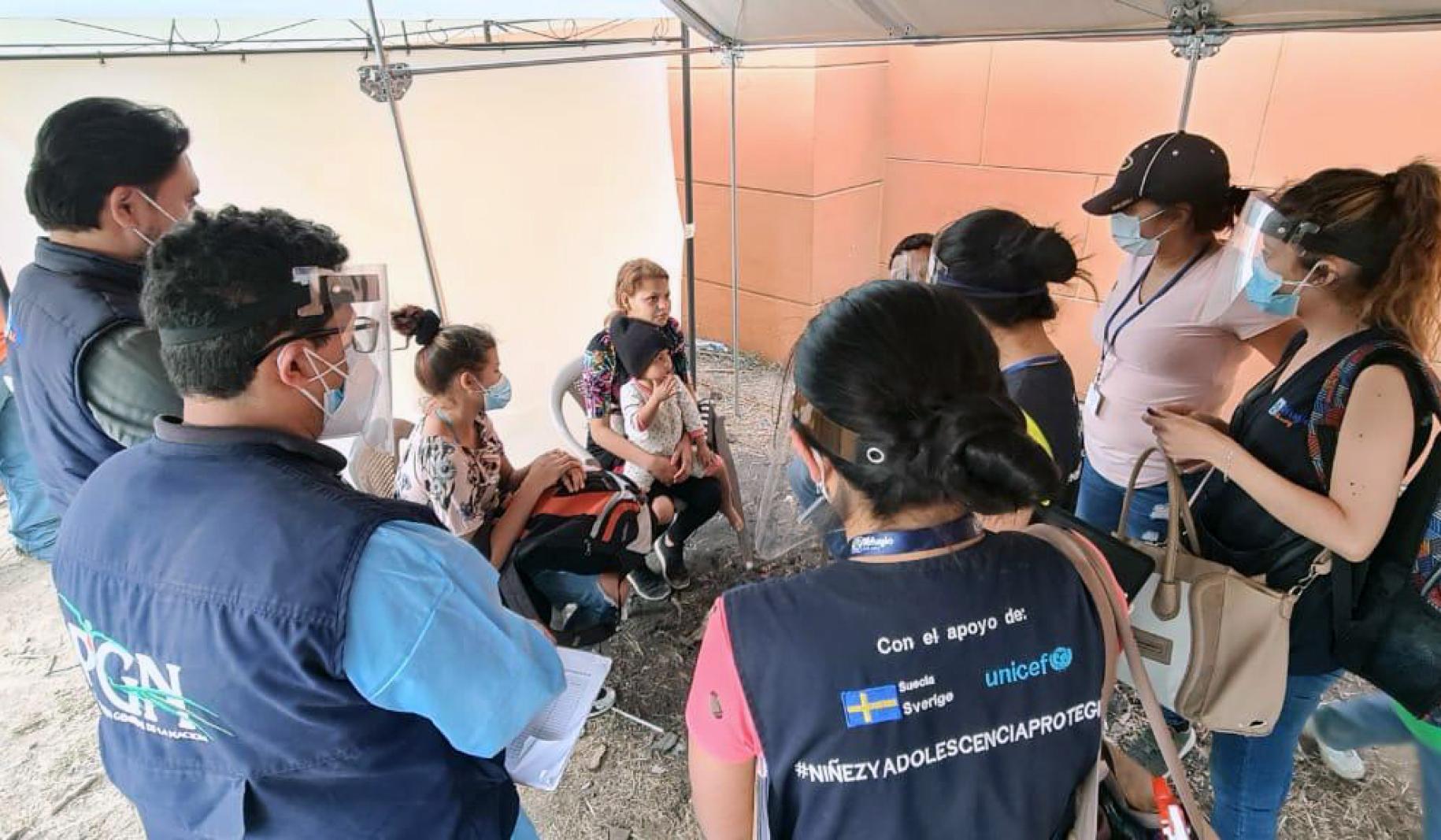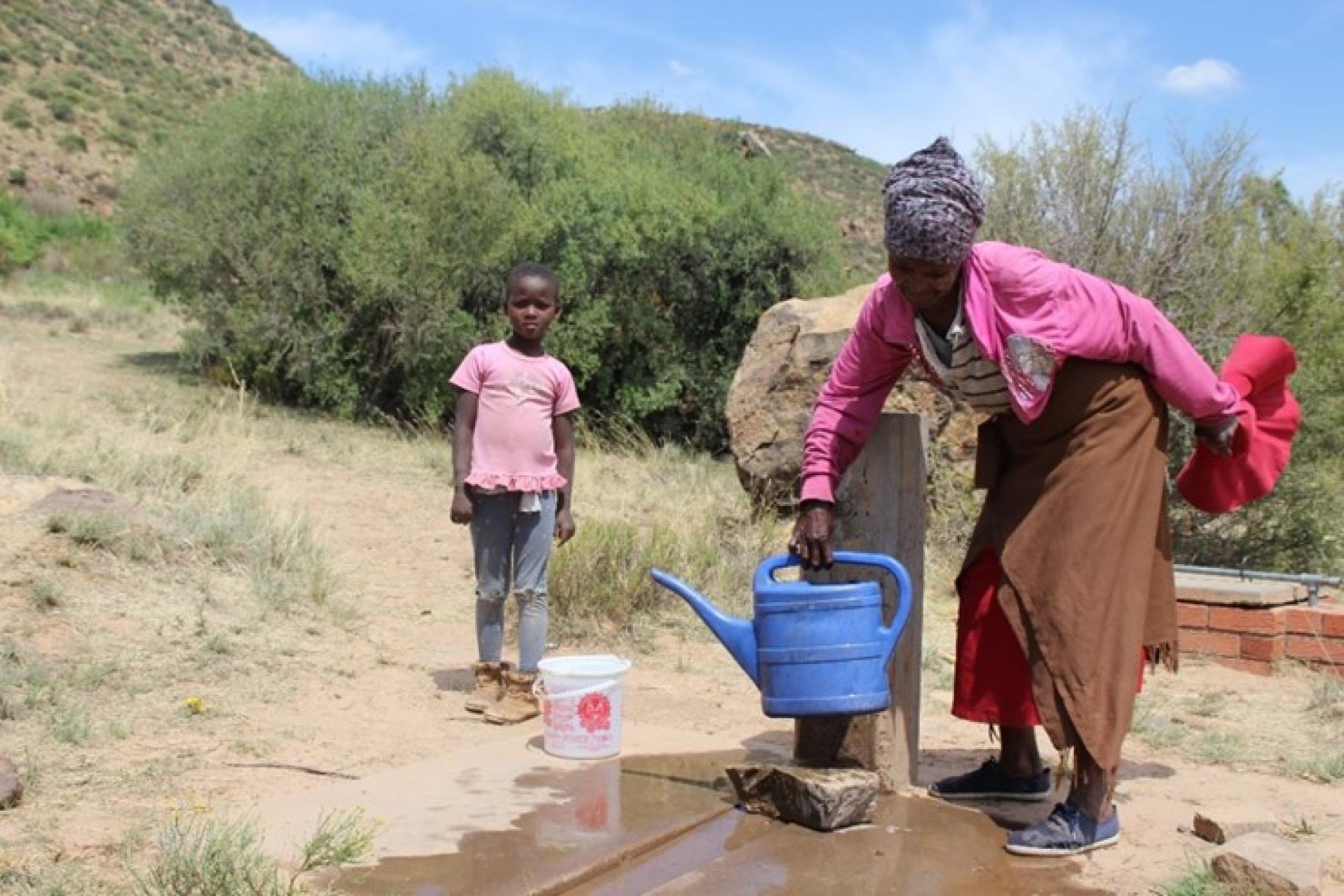Updates from the field #34: UN teams help ensure the safety and dignity for those most in need
The world welcomed 2021 with a heightened commitment to fighting COVID-19, especially for those most in need of support.
UN teams continue to work with national and local authorities worldwide to ensure the safety and dignity of refugees and migrants, indigenous communities and children. Their efforts support the betterment of countries' health and socio-economic conditions, including better living conditions for those most at risk, lifesaving training, supplies and equipment, human rights protection and aid in ensuring no adult or child is left behind.
We highlight below some of those coordinated efforts.
Bosnia and Herzegovina
Following strong advocacy by several actors, including the European Union and the UN, our UN team in Bosnia and Herzegovina is pleased to note that the authorities are making considerable efforts to address the situation of migrants and refugees.
Our colleagues there say that life-saving solutions are being put in place at the Lipa site. People there are being temporarily being accommodated in tents set up by the national armed forces.
The International Organization for Migration (IOM) and the UN Refugee Agency (UNHCR) have visited Lipa and say the situation there is becoming more manageable.
However, our UN team is stressing that much more needs to be done, including at Lipa, to ensure all people affected needing safe and dignified shelter obtain better reception conditions and efficient services. The teams on the ground say there are still several hundred people stranded, mostly in the Una-Sana Canton of Bosnia and Herzegovina. They said there needs to be more distribution centres across the country to alleviate the burden, since overcrowding is aggravating health and protection risks, particularly in light of the COVID-19 pandemic.
Brazil
In Brazil, the UN team, headed by Resident Coordinator Niky Fabiancic, is supporting the health system in the northern state of Amazonas to address the pandemic.
A team from the Pan-American Health Organization (PAHO), is in the capital city Manaus. They are supporting efforts to tackle COVID-19 with local, state and national authorities. PAHO/WHO experts met with municipal health authorities to strengthen the protocol for primary care units in Manaus. This week an expanded PAHO/WHO team arrived in Manaus to boost support, following extensive work from the entire UN team focusing in the northern region.
For its part, the United Nations Population Fund (UNFPA) purchased 60 oxygen cylinders, in response to local authorities’ requests. The aim is to care for newborns and women admitted to maternity hospitals and in dire need for oxygen there.
The UN Children’s Fund (UNICEF) delivered 250 hygiene kits and 250 food baskets to indigenous people in Manaus. UNICEF has also delivered more than 60 thousand hygiene kits, 101 thousand masks and 575 thousand soap bars. They are destined for vulnerable people, people living on the streets, riverside dwellers, indigenous people, elderly people and those living in shelters. Venezuelan families of refugees and migrants in the state of Amazonas are also benefiting from this distribution.
For its part, IOM has been working to mitigate the transmission of COVID-19 between indigenous and riverside communities. Since the beginning of the year, 2,600 hygiene and cleaning kits have been distributed to health networks in two Amazon regions of Amazonas and Roraima.
Central America: Guatemala and Honduras
A note from Central America, where the UN teams in Guatemala and Honduras are working with governments and partners to protect a caravan of migrants who are currently in Guatemala.

UNICEF, IOM, UNHCR and the UN Human Rights Office (OHCHR) are all on the ground. They are focusing on care and protection of unaccompanied children, observation of compliance with international human rights standards and the national legislation, as well as the distribution of water, food and hygiene kits. An assisted voluntary return programme has also been established and the UN team is monitoring that flow of people.
The Resident Coordinator in Guatemala, Rebeca Arias, is in constant communication with the Government to provide the necessary support and technical advice to authorities, as well as humanitarian assistance for migrants.
In Honduras the UN team is working with the government and coordinating with various partners, including international NGOs, a response and preparation for the voluntary return of Honduran migrants. Official estimates lead the UN team and authorities to prepare for the return of 1500 migrants, many of them children. The UN team is also concerned with the structural and underlying causes of migration, including poverty, inequality the impact of COVID-19 and the two tropical storms that hit Central America last year. The team also calls for the protection of migrants’ rights to an orderly, safe migration, while strengthening the regional and sub-regional dialogue to address migration in Central America.
Lesotho
An update from the ground in Lesotho on what the UN team, led by acting Resident Coordinator Anurita Bains, is doing to address the pandemic.
The team says that, since last month, COVID-19 cases and deaths have increased [by] 100 per cent in Lesotho, with a severe second wave currently stressing healthcare systems and livelihoods.
Movements and economic restrictions are making the delivery of our essential programs challenging.
The UN team assisted all of the country’s 193 health facilities to maintain essential services, including maternal health for nearly 200,000 women, as well as HIV support and vaccinations for more than 22,000 children.

The team also trained more than 13,000 community health workers to respond to the pandemic. More than 360,000 people have benefitted from improved access to water and sanitation, with the UN having built nearly 170 permanent handwashing stations.
More than 160,000 people, including returning migrants, have received cash transfers to cushion the impact of the crisis.
Also, 35,000 households received seeds, while the UN also mobilized resources for over 50,000 Child Grant Programme beneficiaries.
We also supported three new apps to monitor community cases of the virus, and also to report domestic violence, and an e-market platform for smallholder farmers.
Thailand
In Thailand, the resident coordinator Gita Sabharwal is leading the UN team's work, with the government, private sector and civil society to address the impacts of the pandemic.
WHO is supporting the Ministry of Public Health to pilot a new healthcare model, which will boost access to tele-medicine while modifying pathways within medical facilities to keep patients and health workers safe.
From a socio-economic standpoint, at the request of the government, the UN Development Programme (UNDP) is monitoring the impact of Thailand's economic stimulus package on people's livelihoods and in partnership with the UN Environment Program (UNEP) and the International Labour Organisation (ILO), the green aspects of the recovery.
The UN team is also engaging in the private sector for green, climate-friendly investments to recover better together with the pandemic. In partnership with the Ministry of Industry, the UN Industrial Development Organization (UNIDO) is providing technical assistance to introduce regenerative furnaces and scrap processing machines to reduce dioxin and CO2 emissions in steel and aluminum factories.
For their part, with 12 million children directly impacted by school closures, UNICEF, the United Nations Educational, Scientific and Cultural Organization (UNESCO) and the International Telecommunications Union (ITU) are working with authorities to identify schools and communities lacking internet access and to support e-learning.





































